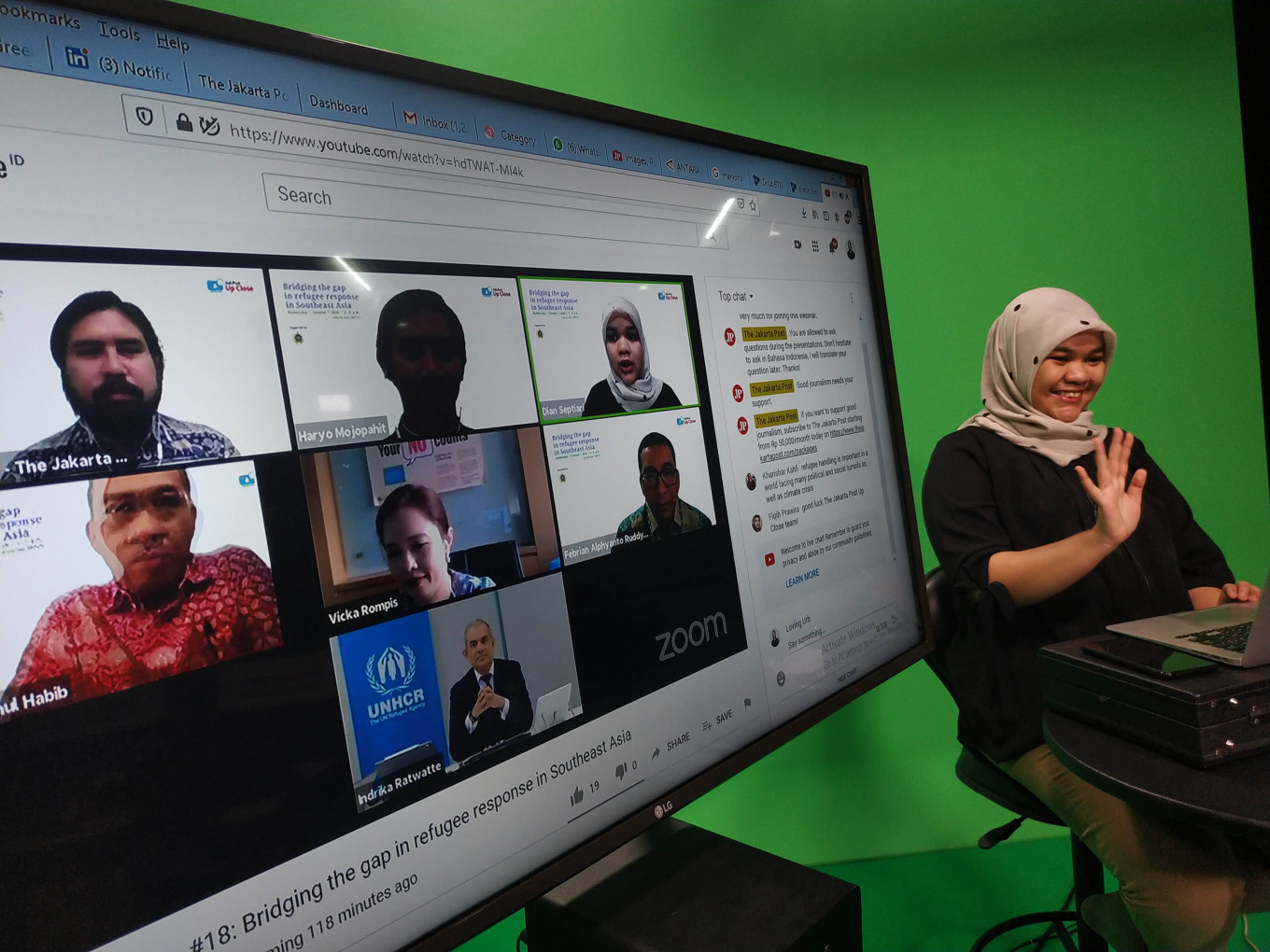Popular Reads
Top Results
Can't find what you're looking for?
View all search resultsPopular Reads
Top Results
Can't find what you're looking for?
View all search resultsUNHCR, NGO call for nations to step up in tackling refugee crisis
As a transit country for migration, Indonesia has hosted a total of 13,657 registered refugees from 45 countries up until 2019, according to the UNHCR.
Change text size
Gift Premium Articles
to Anyone
C
iting Indonesia as an example of a country that has seen success in handling the refugee crisis in Southeast Asia, the United Nations High Commissioner for Refugees (UNHCR) and a non-state actor have called on the international community to take on a greater responsibility in dealing with refugee issues.
In 2019, the UNHCR reported that the number of global refugees and asylum seekers had reached more than 30.3 million people. Today, 84 percent of the world's refugees reside in low- and middle-income countries.
As a transit country for migration, Indonesia has hosted a total of 13,657 registered refugees from 45 countries up until 2019, according to the UNHCR.
In August and September alone, the Foreign Ministry reported that Indonesia received nearly 400 Rohingya refugees who drifted in from the Aceh Sea after fleeing the Rakhine state of Myanmar.
Up until today, Indonesia has yet to sign the 1951 Refugee Convention and its 1967 Protocol.
“Indonesia as the nonparty to the convention has been going the extra mile to address refugee issues,” the Foreign Ministry’s multilateral cooperation director general, Febrian Alphyanto Ruddyard, said during the Jakpost Up Close webinar "Bridging the gap in refugee response in Southeast Asia" on Wednesday.
Together with Australia, Indonesia initiated the Bali Process forum in 2002 to facilitate discussions and information-sharing about refugees, human trafficking and other transnational issues.
“Acknowledging the growing expectations of the international community regarding the ongoing crisis, it also needs to be understood that the Bali process is not a silver bullet that will magically solve the problem once and for all,” Febrian said.
“However, the Bali process has served as an important catalyst in enhancing coordinated policy, response and mutually beneficial cooperation to address the crisis”.
Local NGOs such as Dompet Dhuafa have provided health care, food, shelter and psychological first aid for women and children refugees in Indonesia.
“As an NGO, we try to fill the gap between policy and reality. We have alliances to collect resources and help the refugees,” Dompet Dhuafa general manager for advocacy Haryo Mojopahit said.
According to Haryo, if the state is able to manage refugees, it can only help the local community to grow stronger.
Yet, the issue of equitable burden sharing over the refugee issue has come into question with multilateralism and solidarity in cooperation being challenged with political reluctance.
“In Southeast Asia, many countries have not signed the refugee conventions, but they have risen to the spirit of it,” UNHCR director for Asia and the Pacific Indrika Ratwatte said.
“In that sense, the spirit transcends international law.”
According to Indrika, there needs to be collective political willingness to use platforms like the Bali Process to turn ideas into action. He said he appreciated the efforts of developing countries like Indonesia that took on a larger role in dealing with refugee issues compared to their wealthier counterparts.
The United States and European countries continue to be the largest donors in UNHCR programs. However, the agency has so far only received US$4.5 billion, 49 percent of the total $9.1 billion required for its global operations this year.
The consequences of this funding gap are particularly devastating for developing countries hosting the majority of the world's refugees.
“Through this forum, I would ask the international community, particularly states and governments who sent letters to the government of Indonesia asking [for] assistance for refugees, to also show their contributions in managing the refugees, especially in [Southeast Asia],” the ministry’s human rights and humanitarian affairs director, Achsanul Habib, said.










